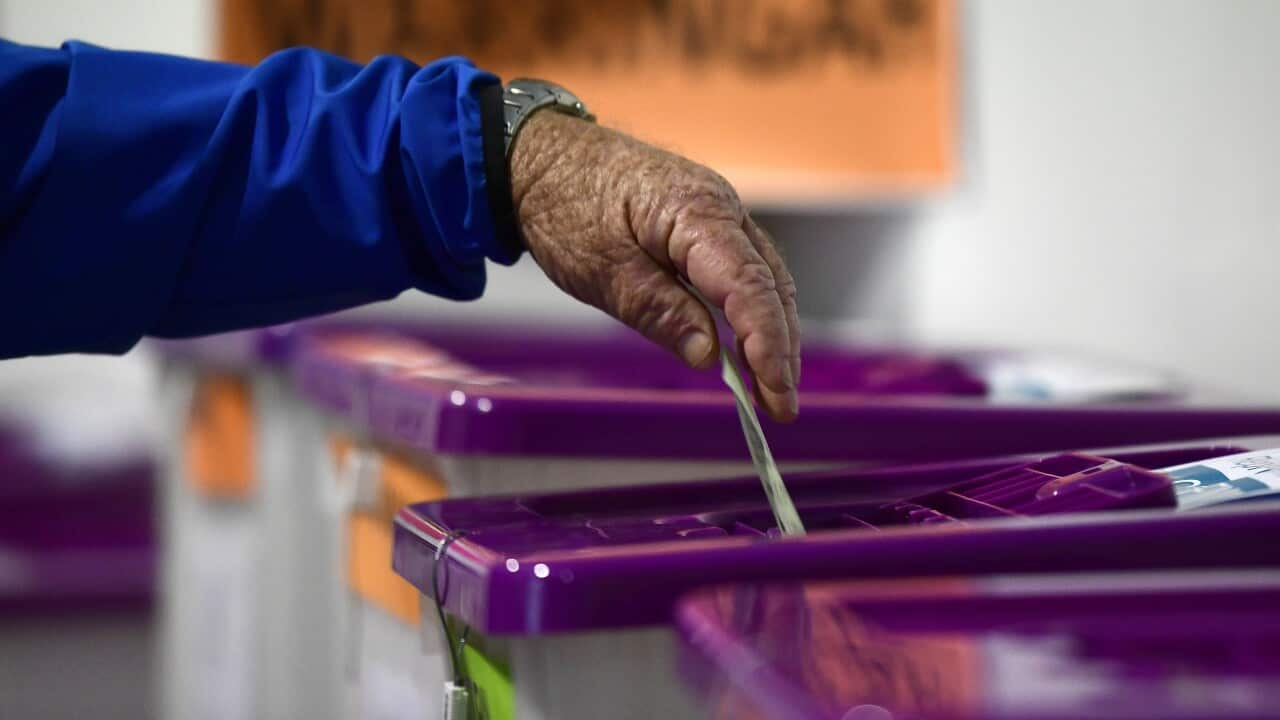A bid to have 'X' count as a 'no' vote in the upcoming Indigenous voice referendum has been dismissed by a judge, but the fight will go on as ticks continue to be considered 'yes'.
United Australia Party senator Ralph Babet and the party's chairman, mining magnate Clive Palmer, went to the Federal Court seeking to have ballot papers marked with a cross or 'X' counted as a vote against the proposed alteration to the constitution.
There was debate about whether they had standing to bring the matter as the party was deregistered in September 2022.
Justice Steven Rares chose not to engage in that "somewhat vexed issue", deeming it unnecessary after rejecting the application on Wednesday.
The Australian Electoral Commission has distributed advice telling people to make their vote count by writing in English either 'yes' or 'no' in the box on the ballot paper.
The commission stated a tick in the box will count as 'yes', backed by decades of legal precedent across six referendums.
"The legal advice provides that for a single referendum question, a clear 'tick' should be counted as formal and a 'cross' should not," the commission said in August.
Ballot papers marked with an 'X' would be considered informal and not be counted due to ambiguity about what that can mean.
The case came before the court urgently with the vote less than four weeks away.
Lawyer Philip Santucci, who mounted the failed application, said a court ruling would provide clarity and voters would have good reason to accept the eventual referendum outcome knowing "not only their vote was counted, but how it was counted compared to all those others in the electorate".
"The question of what a voter intended by the use of ticks and crosses must be dealt with in context," he said.
If counters begin with the assumption voters intended to cast a formal ballot, a cross is conclusively a disapproval of the proposition, Mr Santucci said.
Alternatively, a tick could not be regarded unambiguous if a cross was ambiguous, in the context of mandatory voting on a single question where some could view voting itself as an exercise in "ticking a box", he argued.
The commission's barrister Stephen Free SC contended a tick was "of a fundamentally different character" to a cross.
"To respond with a tick is unmistakably clear as signalling an intention to approve," he said.

Voters will hit the polls on October 14 for the Voice to Parliament Referendum. Source: AAP / Mick Tsikas/AAP Image
"It does not convey a negative response," he said.
He ordered the applicants to pay the commission's costs.
Senator Babet was quick to confirm he would appeal the decision within a seven-day deadline set by the court.
The October 14 referendum ballot will present a proposed law to alter the constitution "to recognise the First Peoples of Australia by establishing an Aboriginal and Torres Strait Islander Voice".
Voters will be asked: "Do you approve of this proposed alteration?"
In order to pass, the referendum needs more than half of all voters and four of the six states to vote in favour of the proposal.











